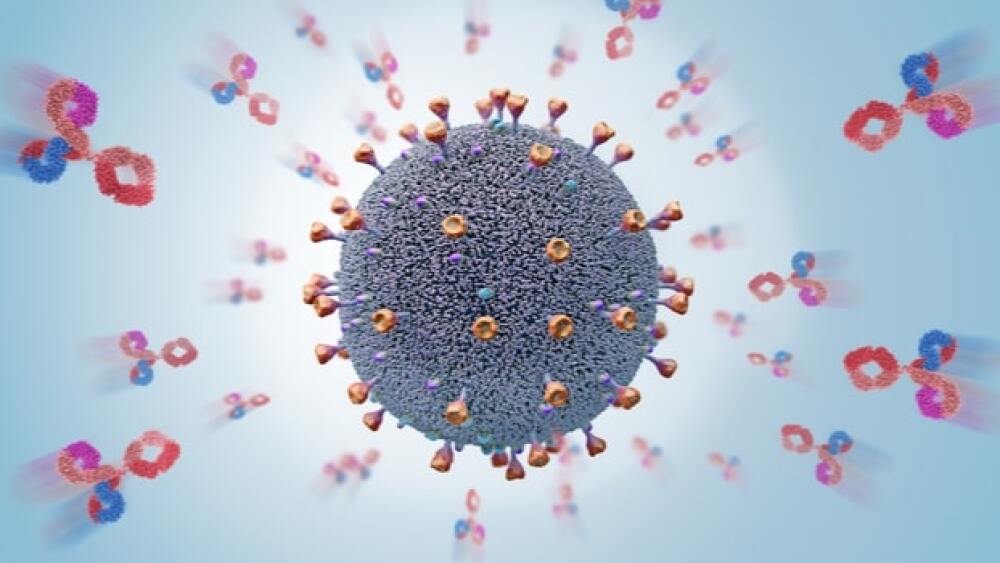The researchers used this antibody, which is 10-times smaller than a full-sized antibody and the smallest isolated biological molecule to date, to develop a potential therapeutic and prophylactic agent against the virus termed “Ab8.”
Researchers from the University of Pittsburgh School of Medicine (UPMC) have isolated an antibody that has been shown in animal models to completely and specifically neutralize the severe acute respiratory syndrome coronavirus 2 (SARS-CoV-2) virus, the virus responsible for coronavirus disease 2019 (COVID-19).
The researchers used this antibody, which is 10-times smaller than a full-sized antibody and the smallest isolated biological molecule to date, to develop a potential therapeutic and prophylactic agent against the virus termed “Ab8.” The antibody component, a variable-heavy chain domain fused to part of an immunoglobulin tail region, was found by “fishing” in a pool of more than 100 billion candidates using the SARS-CoV-2 spike protein as the bait.
Data to support the efficacy of this agent were published in a recent edition of the journal Cell, which show that Ab8 was highly effective in preventing and treating SARS-CoV-2 infection in hamsters and mice. Even when administered at as low as 2 mg/kg per dose, the antibody reduced the amount of infectious virus by 10-fold in mice compared with untreated controls.
The study was conducted by researchers from the UPMC in conjunction with researchers from the University of North Carolina at Chapel Hill (UNC), and University of Texas Medical Branch (UTMB) at Galveston, University of British Columbia and University of Saskatchewan.
The efficacy of this therapy, according to the investigators, is possibly enhanced by its small size. This feature increases its potential for deep tissue diffusion to improve viral neutralization and also improves the ability to administer the drug via alternative routes, such as inhalation or intradermal administration.
The researchers emphasized that the small antibody does not bind to human cells, suggesting it may not be associated with negative side effects in humans.
“Ab8 not only has potential as therapy for COVID-19, but it also could be used to keep people from getting SARS-CoV-2 infections,” study author John Mellors, M.D., chief of the Division of Infectious Diseases at UPMC and Pitt, said in a statement. “Antibodies of larger size have worked against other infectious diseases and have been well tolerated, giving us hope that it could be an effective treatment for patients with COVID-19 and for protection of those who have never had the infection and are not immune.”
Safety trials of Ab8 in humans are expected to start sometime in 2021, with the goal of getting the FDA to approve the drug for advanced clinical trials. A UPMC-funded company, Abound Bio, has since in-licensed the rights to Ab8 to develop the therapeutic and prophylactic candidate on a global scale.
“The COVID-19 pandemic is a global challenge facing humanity, but biomedical science and human ingenuity are likely to overcome it,” Mellors said. “We hope that the antibodies we have discovered will contribute to that triumph.”





